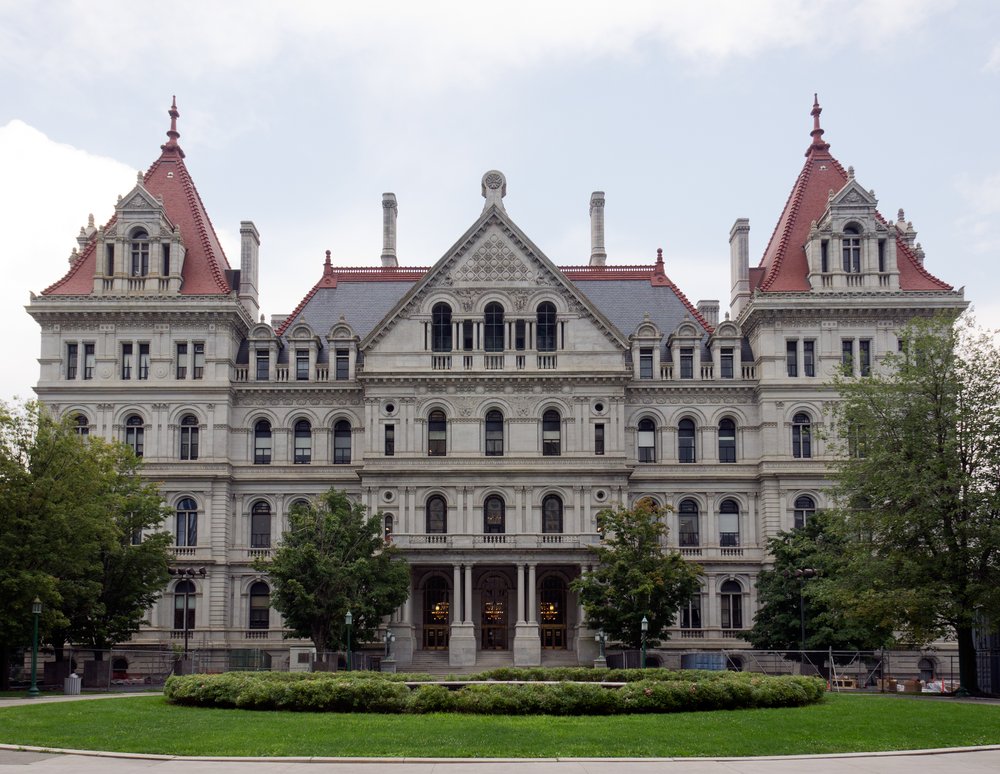Reparations are on the mind in Albany and New York City Council
June 11, 2023, 6:01 a.m.
Proponents want study commissions to weigh in on reparations and remedies for the generational toll from slavery.

No checks are in the mail, but New York is inching closer to considering reparations as an answer to harm tied to slavery.
State lawmakers have put the threshold question on the doorstep of Gov. Kathy Hochul, backing legislation creating a study commission on “reparations remedies” — as part of the continuing reckoning over slavery, systemic racism and inequality that kicked into higher gear after George Floyd's murder and Black Lives Matter protests in 2020.
“I would have to review it and consider it and think about it,” Hochul said ahead of Thursday’s legislative action. A reparation study bill passed the Assembly, 104-41, and the Senate, 41-21, moving the issue to the governor’s office after years of trying.
The action wasn’t confined to Albany. A series of bills addressing the same history was introduced in the City Council on Thursday. The moves, however incremental, nudge the city and state closer to a thorny public policy debate that is gaining increased attention.
We find ourselves at a historic crossroads, where the shadows of the past collide with the dawn of a new era.
Councilmember Farah Louis, a Brooklyn Democrat
In California, a task force recently proposed a series of recommendations for compensating descendants of the formerly enslaved, including cash payments pegged in excess of $1 million, for lost wealth and opportunity dating to the state’s birth in 1850, though such payments appear far off.
“We find ourselves at a historic crossroads, where the shadows of the past collide with the dawn of a new era,” said City
Councilmember Farah Louis, a Brooklyn Democrat.
The measure before Hochul calls for a commission to study the generational impacts of slavery and segregation in the Empire State, where “enslavement is a defining feature of New York City’s origin story,” as the Montgomery, Alabama-based Equal Justice Initiative put it in a 2022 report. New York abolished slavery in 1827.
'Right reparations and remedies'
The state panel would be charged with creating the “right reparations and remedies,” according to a bill summary by state Sen. James Sanders Jr., a Queens Democrat and a sponsor of the bill. “As a result, reparations and remedies will be studied and established for African American communities who have felt the brutal and unjust generational impacts of the institution of slavery.”
Legislation introduced in the city would also create a task force to study the impact of slavery “and past injustices for African Americans.”
Related measures would compel the city’s Commission on Racial Equity to create a “truth, healing and reconciliation commission” – reminiscent of the restorative justice commission formed in South Africa after apartheid.
The commission would be charged with publishing a report documenting the history and legacy of slavery in the city. For most of the 18th century, enslaved people comprised about 20% of the city’s population, according to the Equal Justice report.
Another city measure would create a plan to remove, where possible, public works of art depicting enslavers or individuals “who participated in the institution of slavery or other crimes against humanity.” Plaques would go up alongside works that could not be removed, describing their connection to enslavement or other dark history.
Councilmember Charles Barron, a Brooklyn Democrat, introduced a reparations bill in the Legislature when he served in the body. He issued a statement commending those who passed the new bill, but lamented that it stripped away provisions ensuring a role for community representatives who have spent decades studying and pressing for reparations.
“The battle for Reparations is a battle for human rights and must be led by its victims,” said a statement from Barron’s office issued by Chief of Staff Omowale Clay.
Assemblymember Andy Gooddell, a Republican of Jamestown, said during a floor debate that he was “concerned we’re opening a door that was closed in New York State almost 200 years ago,” the Associated Press reported.
Gooddell, who voted against the bill, said he supports existing efforts to bring equal opportunity to all and would like to “continue on that path rather than focus on reparations.”
Proponents have a ways to go before selling the public on reparations.
A 2021 poll by Pew Research Center found that only 30% of Americans favor reparations payments, while 68% are opposed.
In California, only 43% of respondents to a Public Policy Institute of California survey backed even studying the issue.
However, 59% supported the state Legislature and governor offering a formal apology for “human rights violations and crimes against humanity for enslaved Africans and their descendants.”
State Capitol reporter Jon Campbell contributed to this article.
NY played a key role in the slave trade, but California’s leading on reparations Episcopal Diocese of New York set to apologize for the church's role in slavery NYC Audubon drops ‘Audubon’ from name due to the artist and naturalist's slavery ties